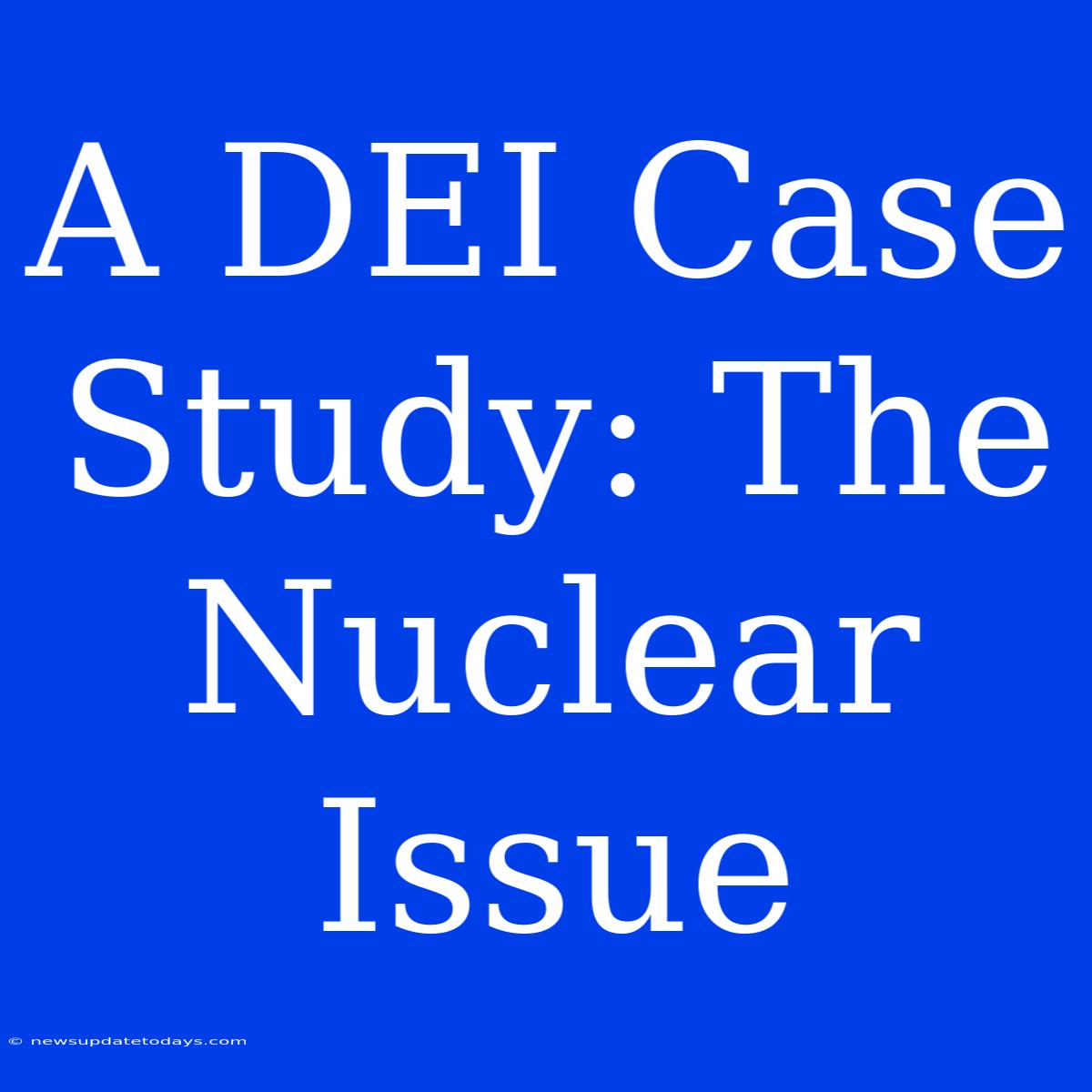A DEI Case Study: Navigating Diversity, Equity, and Inclusion in the Nuclear Industry
The nuclear industry, often perceived as a bastion of tradition and rigid hierarchies, presents a unique challenge for implementing Diversity, Equity, and Inclusion (DEI) initiatives. This case study examines the complexities and crucial need for DEI within this sector, exploring both the hurdles and potential rewards.
The Current Landscape: A Lack of Diversity
The nuclear industry, globally, suffers from a demonstrable lack of diversity across all levels. This is reflected in a significant underrepresentation of women, minorities, and individuals from marginalized communities in both technical and leadership roles. This deficit isn't merely a matter of social justice; it directly impacts the industry's innovation, problem-solving capabilities, and overall effectiveness.
Why DEI Matters in the Nuclear Sector:
-
Innovation and Problem-Solving: Diverse teams bring a wider range of perspectives and experiences, leading to more creative solutions to complex technical challenges. The nuclear industry, with its inherent risks and intricate technological processes, desperately needs this innovative edge.
-
Safety and Security: A diverse workforce is more likely to identify potential safety hazards and security vulnerabilities that might otherwise be overlooked. Different perspectives contribute to a more robust safety culture.
-
Public Trust and Acceptance: Demonstrating a commitment to DEI builds public trust and acceptance, which is crucial for an industry that faces significant public scrutiny and regulatory oversight.
-
Talent Acquisition and Retention: A welcoming and inclusive environment attracts and retains top talent, mitigating the ongoing skills shortage that plagues the industry.
Challenges to Implementing DEI:
-
Traditional Workplace Culture: The nuclear industry often has a deeply entrenched culture of seniority and hierarchy, making it difficult to implement change.
-
Lack of Awareness and Education: Many individuals within the industry may lack awareness of DEI issues and their importance. Effective training and education are essential.
-
Resistance to Change: Implementing DEI initiatives requires a significant shift in mindset and behavior, which can encounter resistance from some individuals and stakeholders.
-
Measuring Success: Quantifying the success of DEI programs can be challenging, requiring the development of appropriate metrics and assessment tools.
Case Study Examples and Best Practices:
While specific company examples require confidentiality, several best practices can be highlighted:
-
Mentorship and Sponsorship Programs: Pairing experienced professionals with individuals from underrepresented groups provides valuable guidance and support. Sponsorship, where senior leaders actively advocate for the advancement of their mentees, is particularly powerful.
-
Targeted Recruitment Strategies: Actively recruiting from universities and organizations with diverse student populations is critical.
-
Inclusive Leadership Training: Training leaders to recognize and address unconscious biases and promote inclusive leadership styles is essential.
-
Data-Driven Approach: Tracking diversity metrics and analyzing the results allows for ongoing evaluation and adjustments to DEI strategies.
-
Employee Resource Groups (ERGs): Creating ERGs for underrepresented groups can foster a sense of belonging and provide a platform for sharing experiences and advocating for change.
Conclusion:
The nuclear industry faces a crucial juncture. Embracing DEI is not simply a matter of social responsibility; it's a strategic imperative for ensuring the industry's long-term viability, safety, and success. By proactively addressing the challenges and implementing effective strategies, the nuclear industry can cultivate a more diverse, equitable, and inclusive workforce, unlocking its full potential and fostering a safer and more sustainable future. Further research and case studies showcasing successful DEI implementations within the industry are necessary to share best practices and inspire positive change.

